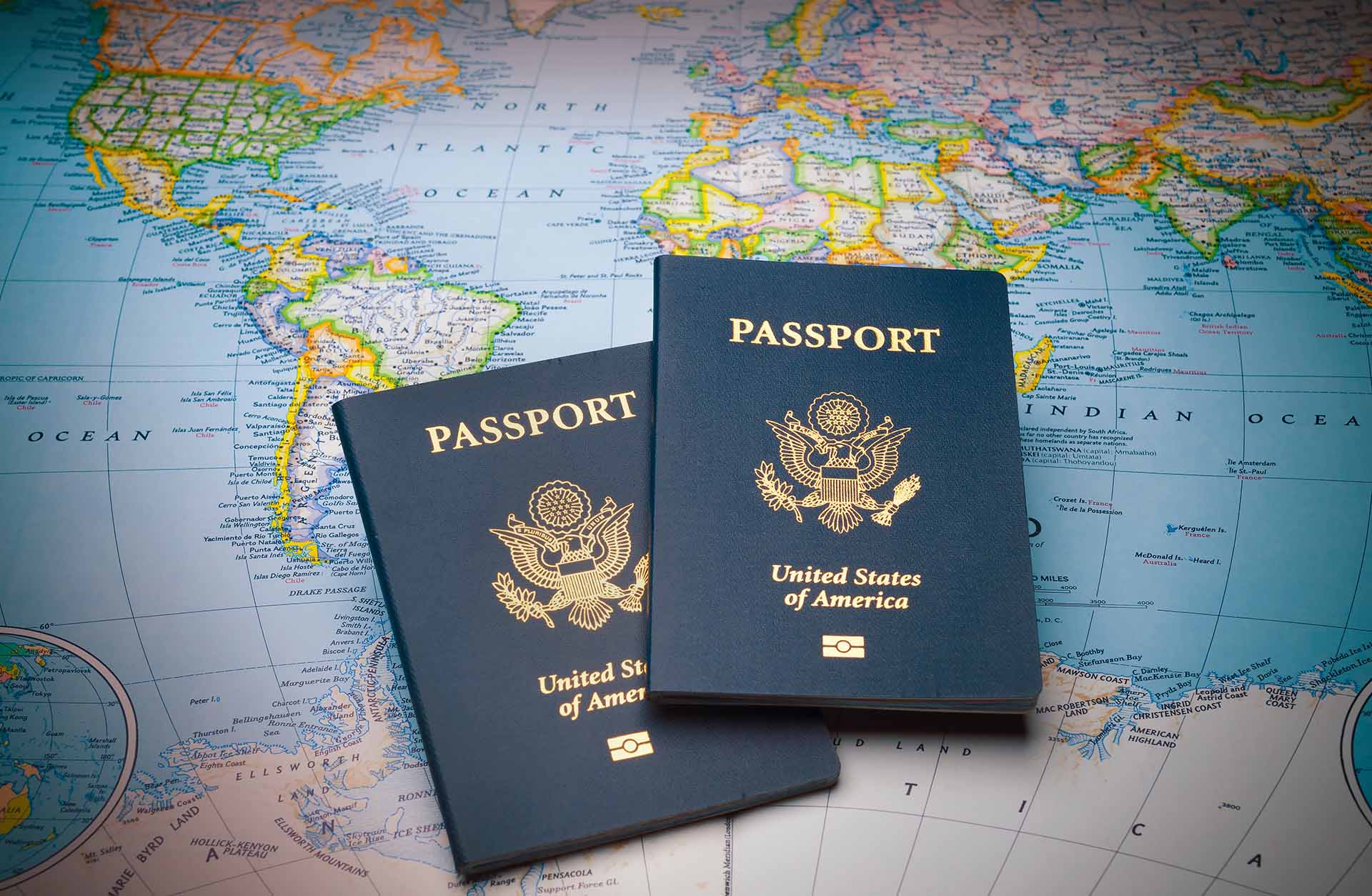You are moving to Denmark soon, and you can’t wait for it. You’ve heard so much about this beautiful country, and now you’re looking forward to calling it your home yourself. The only question is, how exactly are you going to move there? International relocation requires careful preparation, so you should be ready to get down to business and start your preparations early enough.

Just like with any other international move, things might get a bit complicated. There are specific requirements to fulfill, so your number one step would be to find out what is required when relocating to this particular country. In addition to paperwork, you should also prepare for job hunting and finding accommodation. It would also be best that you start thinking about your finances right from the start. Without further ado, let’s find out more about the essential steps to take. We’ll guide you through the entire process and offer some useful tips.
Step No. 1: Deal with Paperwork
You should first think about the most important documents needed to travel abroad, as you can’t go anywhere without these. Even though handling all the paperwork might be somewhat tedious, this is a necessary step to take before you get to the more exciting part. To start with, you can’t enter Denmark without a valid passport.
If you’re traveling or you want to see what it feels like to live here before you actually relocate, you will be able to stay up to three months without a visa. This brings us to a somewhat more intricate question – what does it take to get a permit when relocating to this Scandinavian country? Let’s address that issue.
Find out More About Visa Requirements for American Citizens Moving to Denmark
Your primary concern at this moment should be learning all there is to know about Denmark Visa Application Requirements for American citizens. To begin with, you are supposed to apply for a temporary residence visa before your move. These visas allow you to stay there for one or more years.
The good news is that there shouldn’t be any problems with the bureaucracy because they have a well-organized and reliable system. Some visas can be approved in just a couple of weeks, so you probably won’t have to wait for too long.
When it comes to permanent residency, you can apply for it only after you’ve lived in Denmark for eight full years.

Make Sure You Learn At Least Some Danish Before Moving to Denmark
Breaking the language barrier when moving abroad is of crucial importance, even when you’re relocating to a country where English is widely spoken. Not only will learning the language show your effort to adapt to their culture but in some cases, it is necessary that you learn it.
One of the most common ways people relocate to Denmark is as a spouse of a Danish citizen. In this case, for instance, you will be required to take a language proficiency test after your first six months there. So, you won’t make much use of your English.
Speaking Danish will also clear the path for you to find employment, so it’s worth putting in some effort. Considering the complexity of the language, it will probably take you a few years to feel completely comfortable speaking Danish. Thus, it might be a good idea to start learning as soon as possible. Let’s see what the best way to learn this language is.
Consider Taking Classes to Learn Danish More Quickly
When it comes to Danish, you should have some guide to learning a new language. Some people believe that apps like Duolingo and Babbel are enough for learning a new language. While these are, without a doubt, useful for some fundamental phrases, you might want to consider a more serious approach. Since you’ll want to speak some Danish when you relocate, you should start taking lessons months before your move.
When it comes to learning a language abroad, you can sign up for some classes there, too. Even though the government no longer provides free courses for people with a residency visa, you can still find Danes who give private lessons. And even though Danes speak excellent English, you shouldn’t rely on that. Speaking the language with native speakers is the best practice you can ask for, so don’t waste it.

Explore the Job Market to Find Work Before Your Relocation
In case your current company has an office somewhere in this Nordic country, you can ask for an international transfer, which might be the ideal solution. Otherwise, you need to take time to explore the job market to find work in Denmark according to your skills and qualifications. The most secure sectors include engineering, IT, and medical and health services.
For most Danish work visas, you will be required to have a contract or at least an employment offer waiting for you. Thus, be sure you start looking for one early enough. Given that the unemployment rate here is only 6%, finding employment shouldn’t be much of a problem. Before you accept the offer, don’t forget about the most important relocation questions to ask the employer. Once you land a job, you should apply for a work permit.
Apply for a Visa in Denmark: Types of Work Visas
Depending on the type of employment, you can find several types of work visas, including the following:
- Fast-Track Scheme
- Pay Limit Scheme
- Positive List
- Employed PhD
- Herdsmen and farm managers
The first three are the most common ones, i.e., these apply to the broadest range of sectors.
When it comes to the very application process, you will need to follow a couple of simple steps to complete it, and it can all be done online. Firstly, you will need to create a case order ID, where you’ll state your full name and the type of application you want to submit. The next step will be to pay the fee, which, in most cases, amounts to about $445. Once you’ve done that, you will be asked to submit the required documents, including:
- Copy of your passport
- Proof of paid fee
- Work contract or proof of job offer
- Diplomas proving your qualifications
- Danish authorization (if needed)
Finally, you should submit the application form and then have your biometrics taken within 14 days of filing the application. Then all that’s left to do is wait for a response.

Decide Which City Is the Best for You
Before you start packing to move, there’s a crucial question to answer: where exactly are you relocating? Will you go wherever you find employment? Or you’d rather pick a place and then look for employment there? Either way, it wouldn’t hurt to find out more about the best places to live and what they have to offer to be able to reach a fully informed decision.
The most popular places are usually the largest cities. In this case, the most desirable cities include Copenhagen, Aalborg, Aarhus, and Odense. As it often happens, most employment opportunities are located in the capital and its surroundings, so Copenhagen is usually the first choice for most expats.
Living in Copenhagen: Is the Urban European Life the Right Fit for You?
Calling the capital city your home comes with plenty of advantages. However, don’t forget that it also comes with a somewhat high cost of living. If you’re looking for a more affordable option, it might be better to look for a place in the south of Copenhagen. The north part is known as the more expensive one.
In addition to the cost of living, keep in mind that Copenhagen is a rather buzzing city. If you don’t think its urban European lifestyle will fit you, you might want to consider some other city or at least relocate to the outskirts of Copenhagen.

Check the Cost of Living to Plan Your Budget
International relocation can be a pricey endeavor, so you should think of some ways to save money when moving internationally. Plus, Denmark is known as a rather expensive country compared to its European counterparts. But when we compare the prices here to the cost of living in US major cities, it can be seen that your chosen country is, in fact, rather affordable. For instance, according to Numbeo, the average rent for a one-bedroom apartment in the city center costs $943, which is significantly lower compared to the average $1,300 in the United States.
Considering the well-paid jobs, people usually earn enough money to live comfortably here. Just brace yourself for the high taxes. Regardless of how much you make, your income will be taxed at 8%, plus national and municipal tax. Thus, you’ll be withdrawing a rather significant sum of money from your bank account for taxes.
Speaking of bank accounts, make sure you register for a CPR number to be able to open a bank account in the first place.
Compare Renting and Buying Prices When Looking for a Home
Like it usually happens, housing will be one of the major items on your budget list, as both renting and buying prices are skyrocketing here. If you are dreaming of becoming a homeowner, you should know that buying a house can be a rather tricky business. Namely, the rental market is not the same for foreigners and locals, so don’t be surprised if you can’t find a reasonable mortgage.
When it comes to renting, expect your future landlord to ask for some kind of proof of income to let you move in. You will also be required to sign moving in and moving out reports, listing the flaws and damages in the apartment.

Take Care of Health Insurance
When it comes to healthcare, you won’t have anything to worry about as Denmark has one of the best healthcare systems in the entire world. You will be entitled to free emergency healthcare, but keep in mind that you’ll need a health insurance card for routine medical care.
Register to Get a Health Insurance Card
Also known as the yellow card, a health insurance card ensures free access to healthcare when you move. So, one of the first things you should do when you get there is to register to get one. Your yellow card will contain your name, address, CPR number, and the name and address of your doctor.

Embrace Rich Danish Culture and Enjoy Your New Life to the Fullest
As you can see, moving across the world doesn’t have to be that complicated when you organize the process properly. Be sure you start with your preparations early enough, and you’re good to go. Once you deal with these crucial steps and figure out what to pack when relocating abroad, it’s time to think about the more exciting part of your relocation – your new life.
Look forward to exploring the rich culture and enjoying the sandy beaches of North Zealand. Turn to experts to help you with international moving services to be able to focus on what comes next.








